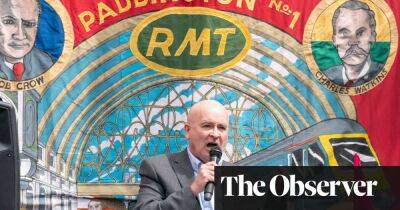Striking workers are providing the opposition that Britain desperately needs
In Britain, more than in most democratic countries, going on strike is a risk. Your employer, the government, most of the media, much of the public and often the opposition parties are likely to be against you – or, at best, unsupportive. Your loss of income is unlikely to be made up by strike pay. Your behaviour on the picket line will be subject to what Tony Blair described approvingly in 1997 as “the most restrictive” trade union laws “in the western world”.
In very public ways, you will be breaking the rules of the modern economy: refusing to work, inconveniencing consumers, acting collectively rather than individually, and making demands for more money openly – rather than in private, as more powerful people do. If you are on the left, you are likely to be told again and again that your strike is politically counterproductive.
Such are the written and unwritten laws that have constricted British strikes for approaching half a century, ever since the walkouts of the 1978-79 winter of discontent inadvertently did so much to bring Margaret Thatcher to power and to provoke the counter-revolution against workers that still continues today. Many voters have long got used to the idea that strikes are a minority pursuit associated with a bygone age to which the country must not return. Boris Johnson’s government, with its especially strong intolerance of dissent, aims to demonise and marginalise strikes even further.
Yet this summer, more and more Britons are striking or considering striking regardless. From railway workers to barristers, firefighters to doctors, Post Office workers to teachers, nurses to civil servants, council workers to British Telecom engineers, an unusually large potential strike wave is building. Its
Read more on theguardian.com

















